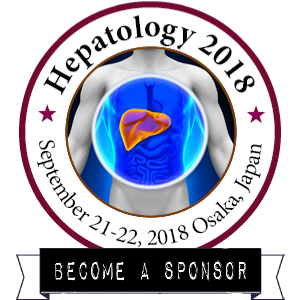Abdel Rahman A Al Manasra
Jordan University of Science and Technology, Jordan
Title: Associate Professor of General Surgery. Health Sciences University, Tepecik Training and Research Hospital, Surgery Department, Izmir, Turkey
Biography
Biography: Abdel Rahman A Al Manasra
Abstract
Introduction & Aim: Fungal organisms can be found in biliary cultures of patients on prolonged antibiotics treatment and have stents; however, fungal masses, or balls, are rarely encountered and extremely difficult to eradicate. The aim of this study is to share our experience in fungal cholangitis complicating malignant bile duct obstruction and to reviews reports previously published concerning management of the recurrent obstruction secondary to Candida infections and its correlation with biliary malignancies.
Methods: We present our experience with 3 patients who complained of obstructive jaundice. All patients had multiple episodes of fungal cholangitis. Bile samples were obtained during percutaneous trans-hepatic cholangiogram (PTC). Two patients were diagnosed with cholangiocarcinoma and one with adenocarcinoma of the head of the pancreas.
Results: Persistent biliary candidiasis may carry a higher morbidity when it rises on the background of biliary malignancy, due to the prolonged course of medical treatment and patient hospitalization, recurrent obstruction with fungus balls, frequent needs to intervene with invasive procedures such as ERCP and PTC and the delay in initiation of chemotherapy.
Conclusion: Patients with positive fungal cultures of bile samples obtained by PTC may have coincidental cancers; similar to cholangiocarcinoma, peri-ampullary tumors and gallbladder cancer, therefore, screening with tumor markers, cytology samples and imaging studies is recommended. Aggressive sensitivity-based treatment with systemic antifungals along with external biliary drainage and irrigation with anti-fungals may be necessary for eradication of infection.

